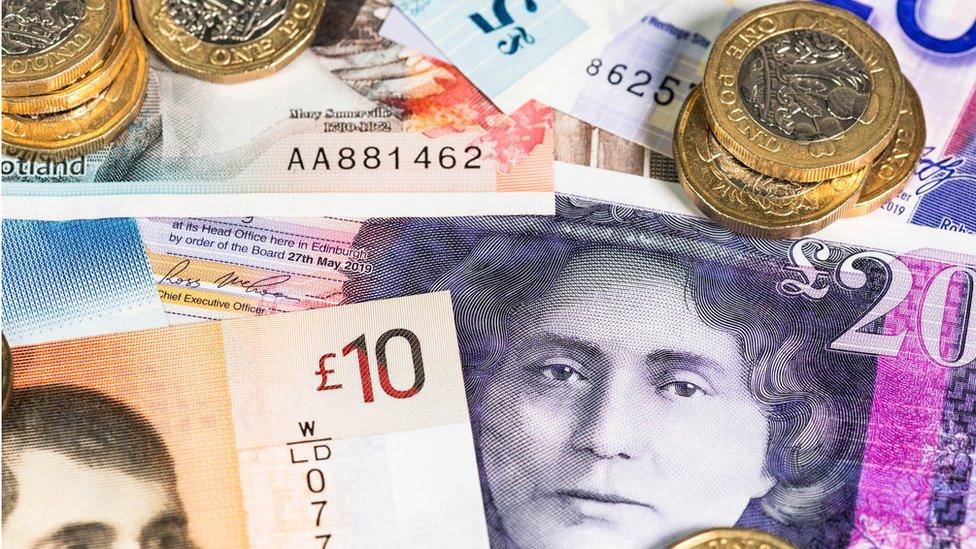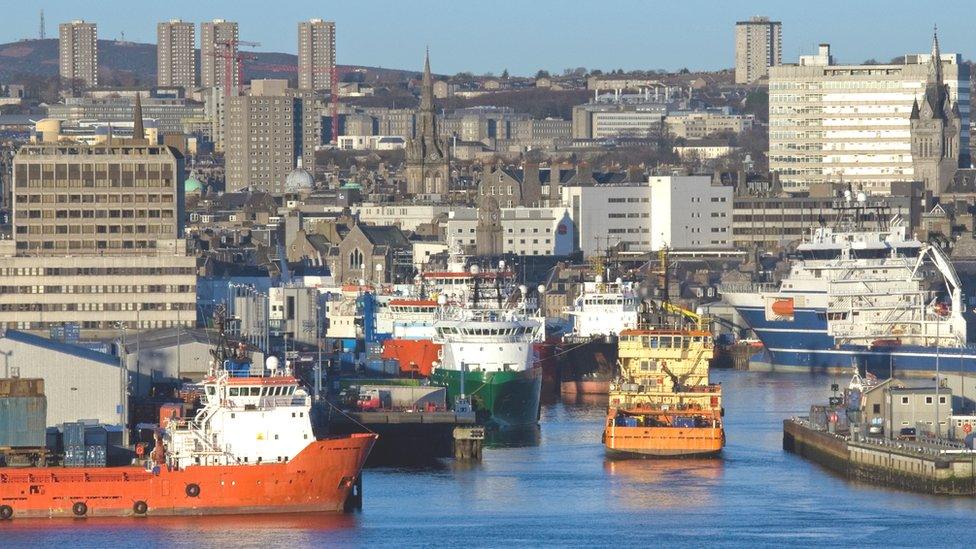Scotland's shops see 10% drop in business rate bills
- Published

Scotland's shops are seeing a fall in business rate bills of nearly 10%, following revaluation from the start of last month.
New figures from the Scottish government reflect changed rental values, on which bills are based.
These have been updated by council assessors for the first time in six years, and form the basis for levying £3.86bn in tax.
Most pubs and restaurants are also seeing an average 5% drop in bills.
Within that, smaller premises are gaining from more of a cut, while the largest ones are seeing their bills go up.
Larger shops have bigger cuts than small ones. For those with a rental valuation between £100,000 and £1m, retail bills are down 13%. Many smaller shops do not have to pay business rates, due to the Scottish government's Small Business Bonus Scheme, external.
Nearly two-thirds of hotels - including guest houses, hostels and some self-catering properties - have seen valuations rise slightly.
A system of transitional relief has been applied, to reduce volatility of business rates, and that means the average bill for hotels is down.
For factories, rateable values are up 10% and bills up by 8%, with the largest industrial sites facing a much higher increase.
The biggest increase in total costs is in the category of "designated utilities", which often cross council boundaries. These include power transmission lines, pipelines, railways, waterworks, telecoms and docks. The bill for these has risen 13%, to £840m.
There are wide variations across the country, with Aberdeen the big gainer. The city's total business rates bill is down by 17%. It was hit by big increases in the 2017 revaluation, which reflected a booming local economy due to high oil prices at the time the previous valuation was set.

Aberdeen's total business rates bill is down by 17%
Renfrewshire and Aberdeenshire businesses are also seeing a decline in bills.
Business rate bills for Aberdeen shops fell 19% last month, but were up in Shetland. Meanwhile, Aberdeen office bills are down by 26%, but Edinburgh offices have seen a 19% rise.
Aberdeen's hotels are seeing valuations down 20%, while in Argyll and Bute, they are rising by 60%, and by more than 20% in East Dunbartonshire, East Lothian and Na h'Eileanan Siar (Western Isles).
A greater value attached to whisky distilleries in Moray explains why valuations in that county have risen more than most local authority areas.
As part of the New Deal for Business announced by First Minister Humza Yousaf, one of the projects being taken on by the advisory group is further reform of business rates, also known as non-domestic rates.
Retailers have led the campaign for reform, as conventional shops face costs from the current system which are not being required of their online competitors.
There has also been criticism of the system for being inflexible in the face of changing revenue and profitability for businesses.
Related topics
- Published17 May 2023
- Published15 May 2023
